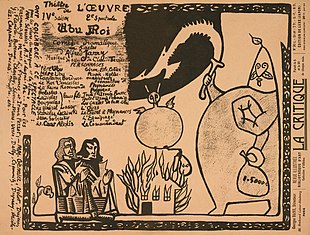Modernism
Modernism is both a philosophical movement and an art movement that arose from broad transformations in Western society during the late 19th and early 20th centuries. The movement reflected a desire for the creation of new forms of art, philosophy, and social organization which reflected the newly emerging industrial world, including features such as urbanization, new technologies, and war. Artists attempted to depart from traditional forms of art, which they considered outdated or obsolete.

Modernist innovations included abstract art, the stream-of-consciousness novel, montage cinema, atonal and twelve-tone music, and divisionist painting. Modernism explicitly rejected the ideology of realism and made use of the works of the past by the employment of reprise, incorporation, rewriting, recapitulation, revision and parody. Modernism also rejected the certainty of Enlightenment thinking, and many modernists also rejected religious belief. A notable characteristic of modernism is self-consciousness concerning artistic and social traditions, which often led to experimentation with form, along with the use of techniques that drew attention to the processes and materials used in creating works of art.
Quotes
edit- Art without content is like sex without intimacy: technically sufficient, but emotionally empty.
- Describing modernism and formalism in an interview with Ann Stubbs on New York City's WBAI (1981)
External links
edit- Encyclopedic article on Modernism on Wikipedia
- Media related to Modernism on Wikimedia Commons
- The dictionary definition of modernism on Wiktionary